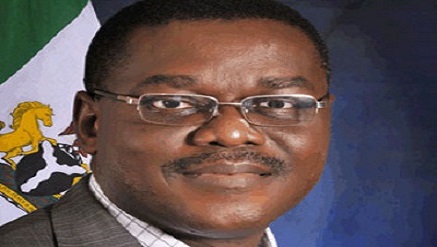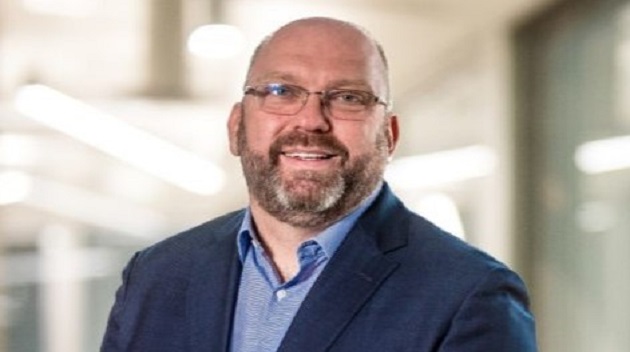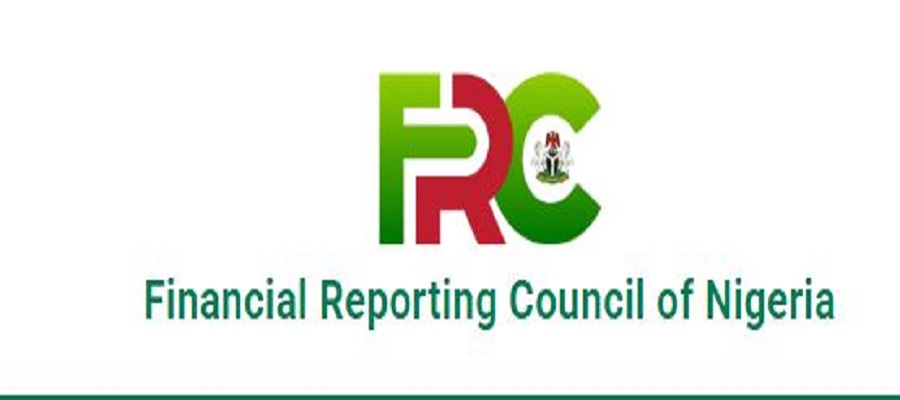General News
CIFF Marks ‘Nutrition for Growth’ First Anniversary

Ensuring affordable access to nutritious food is the key to preventing nearly half of global child deaths.
Under-nutrition is the largest single contributor to child mortality worldwide and directly causes 11% of the global disease burden.
At a micro level, it has a devastating impact on vulnerable children and families as stunting caused by poor nutrition impairs brain development.
If a child does not have adequate nutrition in the first 1000 days of life, it means by two or three years old, they will simply never be able to reach their full potential.
On Wednesday, world leaders reaffirmed their commitment to the pledges made on the 8th of June 2013 at the inaugural Nutrition for Growth summit in London, where the Children’s Investment Fund Foundation (CIFF), together with the governments of the UK and Brazil, co-hosted the high-level international meeting entitled ‘Nutrition for Growth: Beating Hunger through Business and Science’.
The one year anniversary invites reflection on progress made against the pledges made.
The verdict: global prosperity is still being undermined by the silent crisis of under-nutrition. The urgency of concrete and coordinated action has never been higher.
Last week DFID published its “One Year On Update” which outlines its progress over the last year and priorities for the coming year.
It is working closely with the Government of Brazil, which plans to host a nutrition event at the Rio Olympics in 2016.
Marking the anniversary, Michael Anderson, chief executive officer of CIFF, called for more cross functional collaboration to tackle the crisis head on.
Hailing the progress made in Rwanda, for instance, by developing and delivering a clear multi-sector plan, Anderson argued “innovation is important, but the focus should be on basic execution – we know what needs to be done”.
The Commitment: Bringing together business leaders, scientists, governments and civil society, more than 100 stakeholders signed the ‘Global Nutrition for Growth Compact’ in 2013 and collectively committed to reduce the number of stunted children by 20 million, saving 1.7 million lives by reaching 500 million women and children with effective interventions.
The UK Government committed an additional £375 million for direct nutrition programmes between now and 2020 and an additional £280 million if matched by others. 29 companies have signed up to the Nutrition for Growth Compact and CIFF committed $700 million. In addition the Bill & Melinda Gates Foundation pledged $800 million to support work on nutrition and agriculture.
The anniversary marks the first in a series of milestones to drive the agenda forward.
Reports such as “The Cost of Hunger in Africa”, the HANCI report to be published later this month and the first Global Nutrition report in November 2014 all contribute to raising awareness and accountability for nutrition and will build up to the new post-2015 development goals to be launched in 2015 and a nutrition event at the Rio Olympics in 2016 to mark concrete progress in the fight against under-nutrition.
The Children’s Investment Fund Foundation (CIFF) is an independent philanthropic organisation which aims to bring about demonstrable improvement in the lives of children in developing countries, through large-scale, effective investment.
Also, the Department for International Development (DFID) leads the UK’s work to end extreme poverty.
—
General News
NCS to Launch Electronic System for Cash Declarations at Airports

Nigeria Customs Service (NCS) is set to introduce an electronic declaration system to streamline and enhance compliance for travelers carrying cash into or out of Nigeria.

Speaking in an interview with the News Agency of Nigeria (NAN) in Abuja, Abdullahi Maiwada, NCS spokesperson, emphasized that the initiative aligns with efforts to strengthen Nigeria’s anti-money laundering framework and reinforce financial regulations.
“The Nigeria Customs Service (NCS) has announced the deployment of an Electronic-Currency (E-Currency) declaration form as part of its anti-money laundering measures for travelers carrying cash into and out of Nigeria,” NAN reported. The system will require travelers carrying amounts exceeding the legal threshold to declare them before arrival or departure.
Maiwada further explained the process, stating, “We have developed a system where, even before leaving your point of origin, you can scan a QR code, access the form, fill it out, and we will be able to see it from here.”
He noted that the initiative, set for rollout soon, will enhance monitoring and facilitate information sharing with relevant authorities.
Under the Anti-Money Laundering (Prevention and Prohibition) Act 2022 and the NCS Act 2023, travelers carrying over $10,000 (about N15.4 million) or its equivalent in negotiable instruments must declare the funds to Customs authorities.
To boost awareness, the NCS is working with airline operators to inform travelers through onboard announcements and plans to reinstate signage at airports and border points in English and French.
The move comes as part of broader efforts to tighten financial controls following a recent case at the Murtala Muhammed International Airport (MMIA), where Customs officials seized $578,000 from a passenger attempting to evade currency declaration regulations.
General News
Aquaterra Energy Secures Multi-million-dollar well Intervention Contract with Intrepid Energy in Nigeria

Aquaterra Energy, a leader in offshore engineering solutions, has secured a multi-million-dollar, multi-year contract with Intrepid Energy Limited (IEL) to deliver a bespoke subsea well intervention equipment package for a project in Nigeria.

Aquaterra Energy’s turnkey well access package will enable IEL to conduct intervention operations across multiple mature oil wells in the region, supporting enhanced reservoir production.
The contract includes the supply of a complete seabed-to-surface intervention system and package, spanning from the subsea tree to surface intervention equipment.
Key components include Aquaterra Energy’s TRT tieback tooling, which provides production bore and annular access, a lightweight well pressure control system, and an ISO 13628-7 qualified open water intervention riser with an integrated tensioning system. In addition to equipment provision, Aquaterra Energy will also deliver ongoing offshore engineering support throughout the project.
The 7- 3/8” lightweight well access solution, has been specifically engineered for deployment from jack-ups and lift boats. This innovative approach offers a cost-effective and operationally efficient alternative to floating vessels, reducing intervention costs while maintaining high safety and performance standards.
Andrew McDowell, Delivery Director at Aquaterra Energy comments: “Our expertise in offshore engineering allows us to develop tailored intervention solutions that address the operational challenges of subsea well access.
This system has been engineered for efficiency, ease of deployment, and safety, helping IEL optimise intervention activities across Nigeria while reducing costs. By delivering a complete, integrated package, we are simplifying complex operations and enabling operators to maximise production potential.”
Engr Seun Alonge, CEO at Intrepid Energy Limited adds: “Working with Aquaterra Energy marks a significant step forward for our intervention operations in Nigeria. Their specialised technology enhances our ability to execute intervention programmes efficiently, maximising performance across our assets.
By combining Aquaterra’s technical expertise with our deep understanding of the local operating environment, we’re confident this collaboration will enhance production outcomes and create lasting value for our operations in the region.”
The project is set to support intervention operations over multiple years, with Aquaterra Energy providing ongoing technical expertise, with a dedicated team of engineers providing ongoing service support throughout the project.
George Morrison, CEO at Aquaterra Energy: “Delivering reliable and efficient well access solutions for shallow water subsea operations is central to how we support offshore operators.
This collaboration with IEL reinforces our commitment to providing cutting-edge engineering solutions that enhance efficiency and reduce operational costs. With West Africa playing an important role in the global energy sector, we’re proud to continue supporting its offshore industry with our expertise and innovative technologies.”
General News
FG Halts Controversial FRC Dues amid Industry Outcry

Federal government has temporarily suspended the controversial annual dues imposed on public interest enterprises by the Financial Reporting Council (FRC) after fierce opposition from businesses.

Jumoke Oduwole, minister, Industry, Trade, and Investment, announced the decision during a Ministerial Consultative Meeting in Abuja on Wednesday.
The move follows mounting pressure from private sector groups, including the Nigeria Employers’ Consultative Association (NECA) and the Manufacturers Association of Nigeria (MAN), who slammed the Financial Reporting Council (Amendment) Act 2023 for burdening companies with excessive fees.
The Act mandates cumulative annual charges for non-listed entities and imposes a harsh 10% monthly penalty on unpaid dues, compounding until full payment, a provision that sparked widespread backlash.
At the meeting, major industry players like NECA, MAN, the Nigerian Association of Chambers of Commerce (NACCIMA), oil producers, and telecom operators warned that the fees would cripple businesses already struggling in a tough economy.
Oduwole clarified the suspension, stating, “The government has decided to direct the Financial Reporting Council to pause in the implementation of the new annual dues. You know that I am a lawyer, and a suspension request by the organised private sector would be in contravention of legislation duly passed by the National Assembly. A pause is an administrative process simply to review, in line with what we discussed today.”
She assured stakeholders that the halt would last no longer than 60 days, with a technical working group—including FRC officials and private sector representatives—set up to reassess the policy.
“We are a listening administration. The private sector has requested a range from three months to an indefinite suspension. We are not going to do that. So, at the most, 60 days is in my estimate. We are going to set up a technical working group comprised of the FRC and the organised private sector who have formally written in, and this will be reviewed,” Oduwole emphasized.

 Telecom2 days ago
Telecom2 days agoAgain, Labour Fumes, Threatens Shutdown of Telcos over Non-Implementation of 15 Percent Tariff Reduction

 News2 days ago
News2 days agoNNPC Ready to Go to Capital Market for IPO- CFIO

 E-Business2 days ago
E-Business2 days agoFG Launches Online Visa Approval Centre

 E-Business2 days ago
E-Business2 days agoQNET Disassociates From Fraudulent Academy in Abuja, Supports EFCC Arrest

 E-Business2 days ago
E-Business2 days agoFirm Discovers Sophisticated Chrome Zero-day Exploit Used in Active Attacks

 E-Business2 days ago
E-Business2 days agoNITDA Partners JICA to Launch Nigeria-Japan Startup Hub

 E-Financial2 days ago
E-Financial2 days agoFintech, Remittances Anchor Africa’s Booming Payments System

 Telecom1 day ago
Telecom1 day agoIHS Nigeria Hosts Telecom Industry Stakeholders to Discuss Protection of Critical National Infrastructure in Lagos State


























